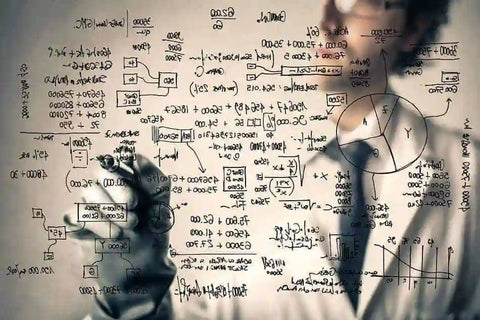The Importance of Writing with Precision in a Thesis or Dissertation
As a postgraduate student working on a thesis or dissertation, you no doubt enjoy the benefits of a primary mentor or supervisor who is an expert in your area of specialisation. Any additional members of your thesis or dissertation committee are probably specialists in the same or similar fields, so the assumption that you are writing for an informed audience who will understand your research and the discipline-specific language that you may use from time to time is a safe one. This does not mean, however, that you can cut corners by neglecting to provide clear explanations of the problems, hypotheses, theories, concepts, approaches, trials, terminology and the like that are used and discussed, either frequently or rarely, by academics and scientists conducting advanced research in your subject area.
For one, if explanations associated with your intentions and precise meaning are unclear, it is possible that even the specialists supervising your work will not be able to decipher exactly what you mean. For instance, perhaps English is not your native language, but you need to write your thesis or dissertation in English, a necessity that has placed significant demands on your writing skills. In the chapter you recently shared with your supervisor, you tried to explain the two main theories you are using by cobbling together some quotations and linking them with a few sentences of your own, but it was only a chapter draft, so it did not seem worthwhile to have your usual proofreader correct and improve your prose. The result is that your supervisor is not only troubled about your confusing interpretation and use of those theories, but also concerned as to whether your writing skills are going to hold up to the challenges of a thesis or dissertation. This is not a good situation and should have been avoided.
It will not do, however, to avoid the problem by simply avoiding the explanations. Indeed, as the supervisor’s response in my example above demonstrates, a thesis or dissertation student is expected to understand and be able to articulate the theories, concepts and practices common in his or her area of specialisation. Your supervisor and other committee members will therefore be looking for those key explanations in your writing, and the fact that you may have discussed them in a meeting the week before and even made it crystal clear in speech that you do indeed understand them and how to use them with intellectual sophistication will not alter the need to tackle them effectively in text.
Finally, your supervisory committee is not the only audience you should anticipate for your thesis or dissertation. An external examiner whose expertise and concerns you may not be able to predict with precision is usually a given and should be foremost in your mind. Once your examination is over and the final version of the thesis or dissertation submitted, your readers can range from your own institution across an international landscape. Some with less specialised knowledge of the area will require those precise explanations of complex material in order to understand your work; others with expertise similar to your own will know just how accurate and thoughtful those explanations are, and, as a result, perhaps cite them or not in positive or negative ways. For both types of readers, then, it is vital to write with precision when reporting advanced research in a thesis or dissertation.
Why Our Editing and Proofreading Services?
At Proof-Reading-Service.com we offer the highest quality journal article editing, dissertation proofreading and online proofreading services via our large and extremely dedicated team of academic and scientific professionals. All of our proofreaders are native speakers of English who have earned their own postgraduate degrees, and their areas of specialisation cover such a wide range of disciplines that we are able to help our international clientele with research editing to improve and perfect all kinds of academic manuscripts for successful publication. Many of the carefully trained members of our manuscript editing and proofreading team work predominantly on articles intended for publication in scholarly journals, applying painstaking journal editing standards to ensure that the references and formatting used in each paper are in conformity with the journal’s instructions for authors and to correct any grammar, spelling, punctuation or simple typing errors. In this way, we enable our clients to report their research in the clear and accurate ways required to impress acquisitions proofreaders and achieve publication.
Our scientific proofreading services for the authors of a wide variety of scientific journal papers are especially popular, but we also offer manuscript proofreading services and have the experience and expertise to proofread and edit manuscripts in all scholarly disciplines, as well as beyond them. We have team members who specialise in medical proofreading services, and some of our experts dedicate their time exclusively to dissertation proofreading and manuscript proofreading, offering academics the opportunity to improve their use of formatting and language through the most exacting PhD thesis editing and journal article proofreading practices. Whether you are preparing a conference paper for presentation, polishing a progress report to share with colleagues, or facing the daunting task of editing and perfecting any kind of scholarly document for publication, a qualified member of our professional team can provide invaluable assistance and give you greater confidence in your written work.
If you are in the process of preparing an article for an academic or scientific journal, or planning one for the near future, you may well be interested in a new book, Guide to Journal Publication, which is available on our Tips and Advice on Publishing Research in Journals website.








